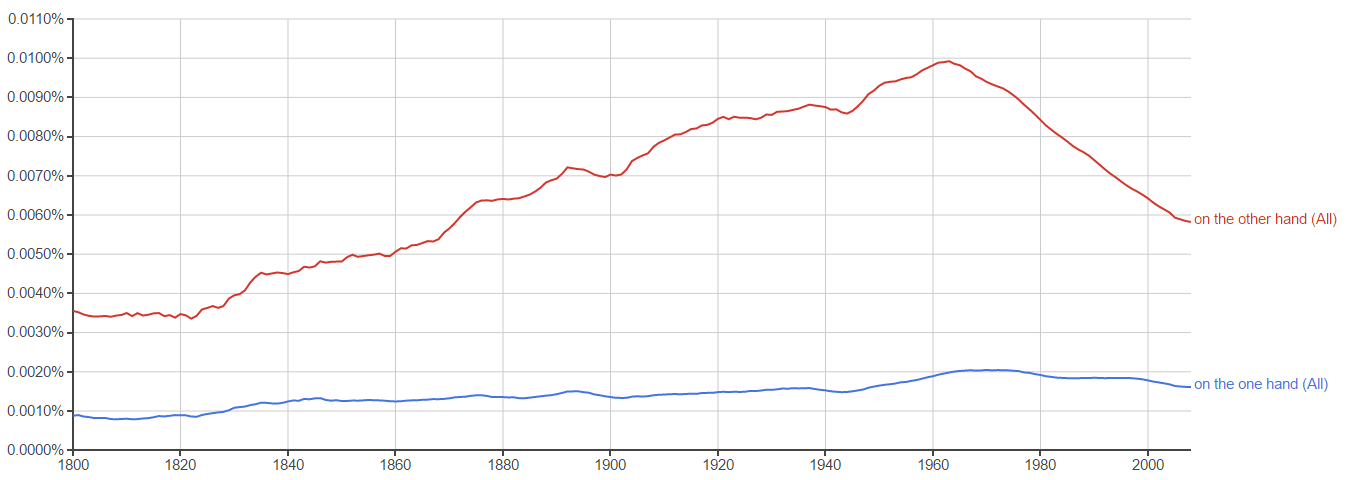I am an English learner in mainland China. I have a question regarding the structure "On the one hand... On the other hand" and would really appreciate it if anyone can elucidate this point.
Please mind that I already know from other posts that "On the other hand" can be used independently without a previous "On the one hand".
My question is: if I have already used "on the one hand", do I have to use "on the other hand" later? Or is it okay to use "on the one hand" followed by contrasting phrases like "by contrast"?

